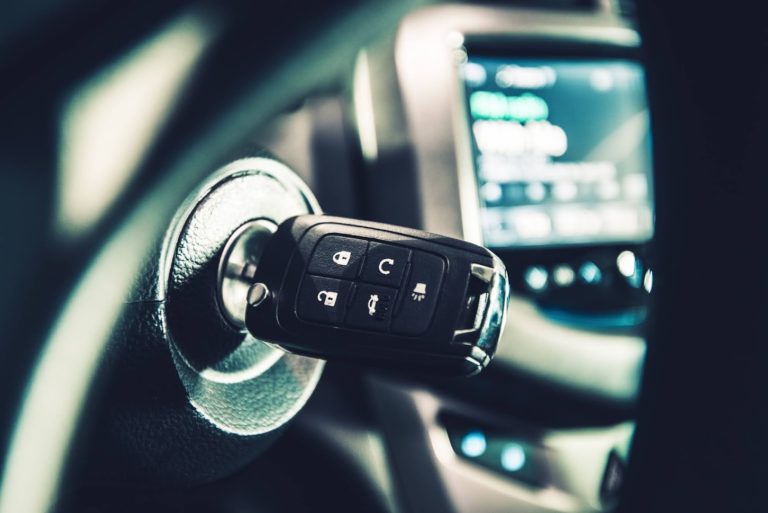No time is a good time for your car not to start. The problem usually indicates that you need to fix your car.
Many factors can cause a car not to start. To take the appropriate action, you need to know what might be causing the problem.
The following reasons might cause your car not to start.
Dead Battery
The battery in your car is an essential component of your vehicle’s electrical system. Your car battery provides the necessary power for your vehicle to run. A defective battery prevents you from starting the car or operating any electrical components.
Several factors can cause your battery to die:
- Leaving headlights or dome lights on for too long
- Having loose wires
- Having evaporated water inside the component
- Having a battery’s life ending
The easiest way to determine if the trouble is a result of a dead battery is to jump-start the car. A successful jump-start indicates that your battery is dying. In such a case, clean up the connections, and if that doesn’t help, replace your battery.
Bad Alternator
The alternator recharges the battery and runs the electrical systems. A malfunctioning alternator might not necessarily result in a faulty battery, but it might make your vehicle inoperable.
Your alternator may be at fault if you’re able to start your car but it stalls, or the interior lights dim as soon as they come on. You may also notice a battery symbol on the dashboard. And due to the alternator’s belt-driven design, a burning smell may also be present.
In the case of a bad alternator, you’ll need an expert to check it out and replace it.
Clogged Fuel Filter
For a vehicle to function effectively, it must have clean fuel. However, every step of the way, from the car tank to the petrol delivery, your engine sucks in debris and dirt. Even so, fuel filters prevent unwanted items from reaching the combustion chambers.
The foreign objects can collect around the fuel filter and restrict fuel flow to your engine. To avoid fuel filter clogs, get a new fuel filter every two years.
Jammed Steering Lock
Occasionally, the key will not turn in the ignition switch, preventing you from starting the vehicle. In that case, your steering lock is most likely jammed. The steering lock activates as an anti-theft measure if someone attempts to move the wheel without the key in the ignition.
The steering lock can occasionally activate by accident, such as if you park your car while the steering wheel is in the lock position.
When your steering lock jams, try wiggling the wheel left and right, then turn it in the direction that allows movement. Once you have unjammed the lock, you can turn the key in the ignition normally and start the car.
Empty Fuel Tank
In most cases, a car won’t start due to insufficient fuel in the tank. The need to refuel your vehicle can sometimes go unnoticed when you drive around all the time.
If your tank is empty, your best bet is to fill a gas can and give your car a couple of gallons to run. Then head to the nearest gas station to fill the tank.
Moreover, always make sure your gas tank has plenty of fuel before driving, and do not let the fuel run low.
Lastly, if your fuel level is often low to the point your car won’t start, get an expert to check your fuel reading gauge. Your gauge might malfunction and be unable to show you the correct reading at the right time.
The above factors can be indicators of a deeper underlying issue that only experts can diagnose. For that reason, always consult a professional when troubleshooting starting problems.
If you have trouble starting your car and need professional assistance, feel free to contact us today.

